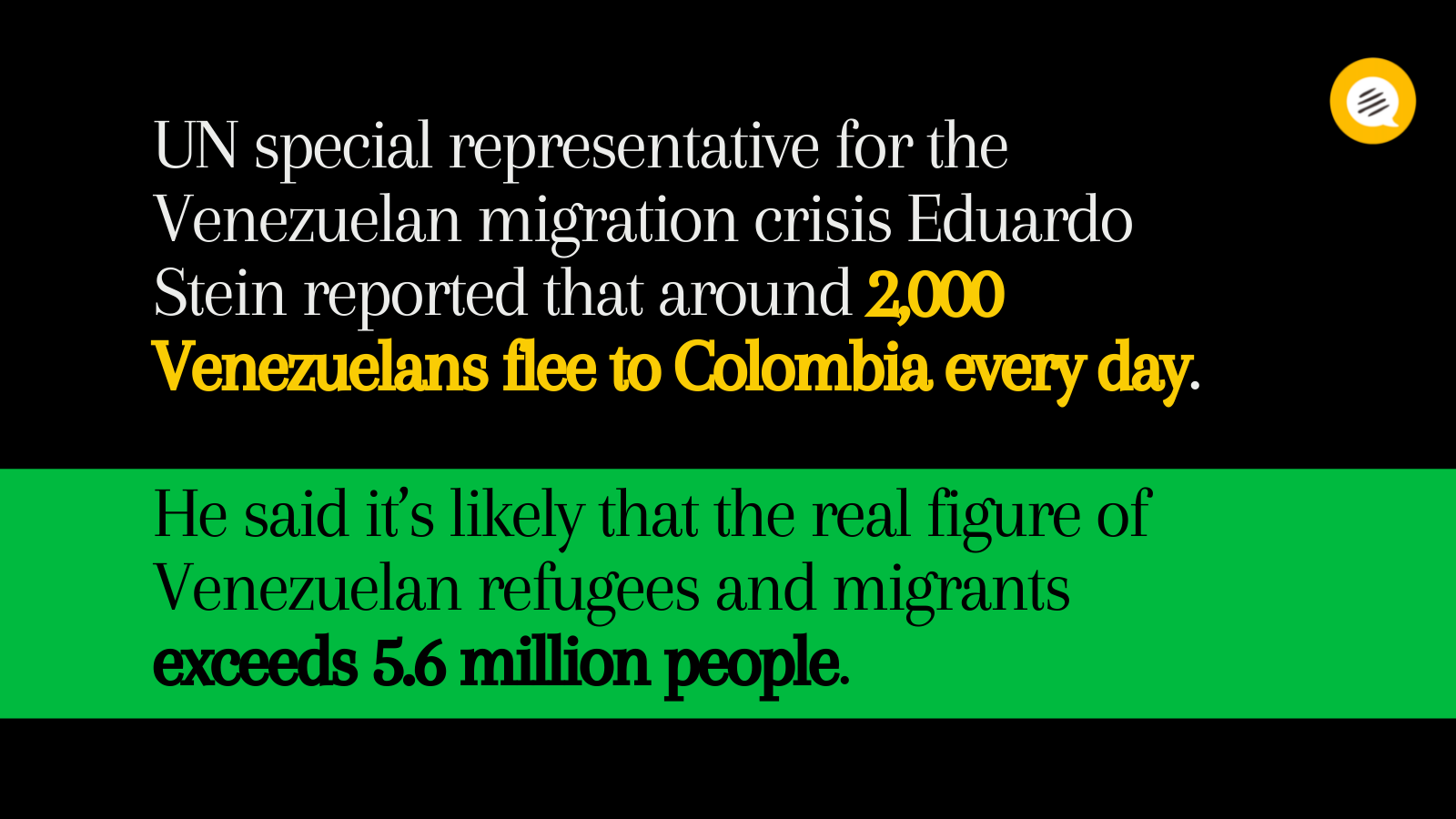55% Of Venezuelan Homes Have A Monthly Income Between 10 And 50 Dollars
The Comisión para los Derechos Humanos del Estado Zulia (CODHEZ) presented its first report on food insecurity. Henrique Capriles distanced himself from Juan Guaidó and called for negotiating an agreement. Oncology patients at Luis Razetti Hospital in Caracas denounced that they haven’t received biopsy results in six months.


Photo: HRW
- The Venezuelan Episcopal Conference denounced on Wednesday “the gradual installation of a totalitarian system” through the communal state pushed by Maduro’s regime.
- The Church denounced that with this model, the regime “seeks to put the people aside and impose a model different to democracy.
- The CEV called for a battle for democracy, demanded a real vaccination plan and condemned poverty, hyperinflation and the disappearance of the bolivar as factors that block access to a dignified life.
- The CEV also reaffirmed the urgency for radical change where we all participate and called on citizens to refound the nation.
- Iván Freites, secretary of the Federation of Oil Workers (FUTPV), reported that the Paraguaná refinery is producing 80,000 barrels of gas per day, Puerto La Cruz is producing 20,000 BPD and Cardón 60,000 BPD, as well as 75,000 barrels of diesel fuel per day. “There’s more gas, there’s more diesel fuel but 50% goes to Cuba and the other 50% is taken by the military through PDV Puertos. They’re the ones distributing oil. There will never be stability while there’s a black market controlled by the military and the Cubans, and while diesel is sold for four dollars per liter and gas for five dollars per liter,” said Freites.
- He questioned the goal established by Tarek El Aissami for the end of the year: “During the first months of the year, production was at 570,000 bpd, then figures at the Faja were 375,000 bpd and one week later it was 293,000 bpd.”
- The union denounced on Wednesday the conditions of the oil industry, including terrible wages, the loss of benefits, and the inability to apply union contracts because chavismo established parallel unions.
- The Comisión para los Derechos Humanos del Estado Zulia (CODHEZ) presented its first report on food insecurity:
- Six out of ten homes reported skipping one meal or no meals per day between one and four times per week.
- Five out of ten homes have to borrow food at least once per week.
- Three out of ten homes rely on help from neighbors, friends or family members in the country in order to eat.
- Six out of ten depend on family abroad.
- Eight out of ten homes sold or traded goods to buy food and seven out of eight worked in exchange for food seven times per week.
- Four out of every ten people said they have to skip breakfast, lunch or dinner between three or four times a week.
- Four out of ten had to make portions smaller every day.
- CODHEZ pointed out that 55.4% of homes had a monthly income between 10 and 50 dollars, and seven out of ten homes spend between $5 to $50 dollars per month on food.
- Henrique Capriles distanced himself from Juan Guaidó and called for negotiating an agreement with chavismo that would lead to the regime agreeing to go to a recall referendum.
- Leopoldo López assured that sanctions “are an opportunity to end the crisis,” and that those measures will remain in place until there’s a significant change.
- CNE rector Roberto Picón said that “until last Thursday we had registered over half a million movements, around a third of which were people enrolling in the electoral registry.”
- Maduro’s Assembly deputy José Gregorio Correa assured that the technical mission that the EU will send to evaluate if it’s possible to send an observation mission will give more guarantees to this election.
- Former CNE president Indira Alfonzo was reincorporated to the Supreme Tribunal of Justice to preside the Electoral Chamber, which is a violation of the Constitution.
- The IACHR asked the Venezuelan State to investigate the murder of LGBTQAI+ victims in Baruta.
- Oncology patients at Luis Razetti Hospital in Caracas denounced that they haven’t received biopsy results in six months, which makes it impossible to obtain a diagnosis and stops their treatment. They said that the hospital’s infrastructure is in complete disrepair.
- Deputies of the Assembly elected in 2015 denounced from SEBIN offices in Plaza Venezuela the human rights violations in the country. They called it a “place of terror” and condemned the torture happening inside the building.
- From La Vega, they reminded everyone that UN High Commissioner for Human Rights Michelle Bachelet demanded the dissolution of FAES.
- President Iván Duque assured that over a million Venezuelans have registered for the Colombian TPS.
- Brazil said that 70% of foreigners who requested Brazilian residence last year are Venezuelans: out of 92,521 applications, 64,765 are Venezuelan.
- Maduro and his Iranian counterpart Seyed Ebrahim Raisi ratified cooperation agreements signed by both nations.
- Nora Bracho, Leopoldo López and Carlos Vecchio met with Senator (R) Rick Scott to seek support for the National Salvation Agreement. Scott assured that “Maduro and his genocidal regime have proved to be dangerous and violent.” He condemned human rights violations and the mass migration crisis.
Caracas Chronicles is 100% reader-supported.
We’ve been able to hang on for 21 years in one of the craziest media landscapes in the world. We’ve seen different media outlets in Venezuela (and abroad) closing shop, something we’re looking to avoid at all costs. Your collaboration goes a long way in helping us weather the storm.
Donate




